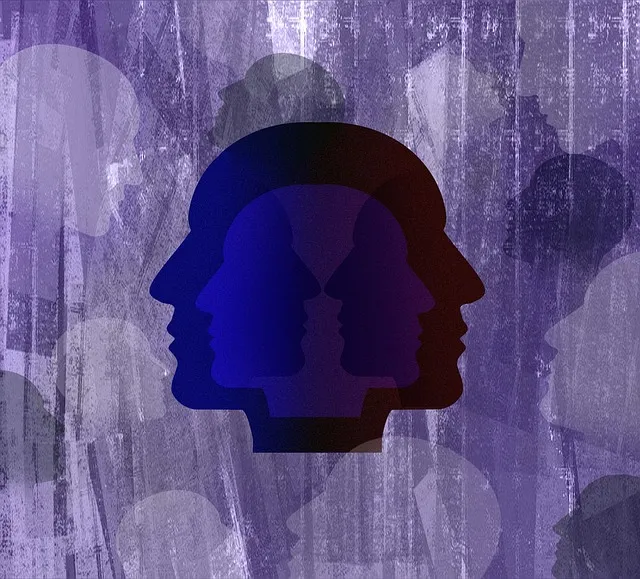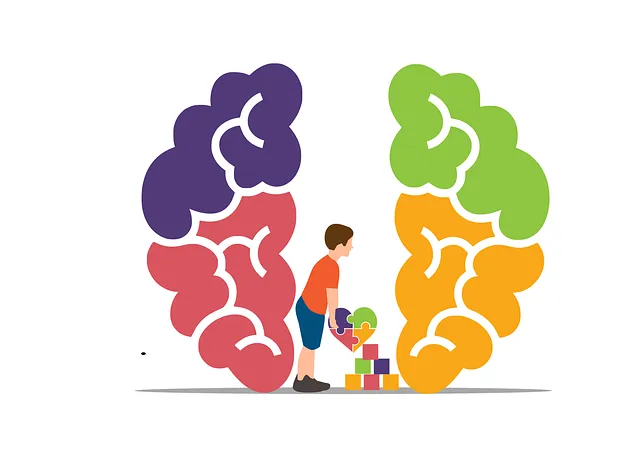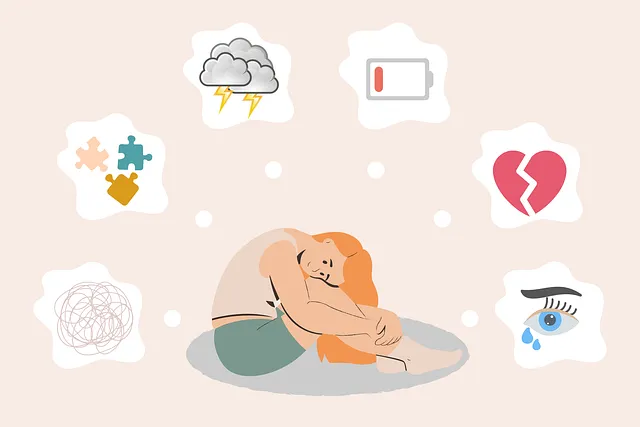Cultural sensitivity is paramount in delivering effective mental healthcare at Kaiser Permanente's Lone Tree locations, where diverse populations present unique mental health needs. Understanding cultural backgrounds shapes how individuals perceive and express mental illness, influencing healing processes. Professionals create inclusive environments by incorporating culturally relevant techniques from traditional practices and community-specific conflict resolution methods. This approach enhances patient outcomes, fostering engagement in Depression Prevention and overall mental wellness. Tailored care, based on cultural identities and needs, improves trust and therapeutic relationships.
Cultural sensitivity is a cornerstone of effective mental healthcare, especially within diverse communities like those served by Kaiser Permanente facilities in Lone Tree. Understanding how cultural background shapes mental health experiences is crucial for providing compassionate and competent care. This article explores this topic through several lenses, focusing on navigating diverse populations, implementing culturally responsive practices, and enhancing patient care in the unique context of Kaiser Permanente mental health jobs in Lone Tree.
- Understanding Cultural Sensitivity: A Foundation for Effective Mental Healthcare
- The Impact of Cultural Background on Mental Health Experiences
- Navigating Diverse Populations: A Challenge and Opportunity for Kaiser Permanente Mental Health Jobs in Lone Tree
- Strategies for Culturally Responsive Practice in Mental Healthcare Settings
- Enhancing Patient Care: Practical Tips for Mental Health Professionals in a Multicultural Community
Understanding Cultural Sensitivity: A Foundation for Effective Mental Healthcare

Cultural sensitivity is a cornerstone in providing effective mental healthcare services, especially when considering roles like those available at Kaiser Permanente mental health jobs Lone Tree. Understanding and appreciating cultural differences can significantly enhance the quality of care offered to diverse patient populations. Every individual brings their unique cultural background, experiences, and beliefs into the therapeutic setting, which can shape their perceptions of mental illness and healing processes. For instance, some cultures emphasize collective well-being and familial involvement in treatment plans, while others may prioritize individual expression and privacy.
By embracing cultural sensitivity, mental health professionals can facilitate more inclusive and accessible Emotional Healing Processes. This involves learning about different cultural practices, customs, and communication styles to avoid potential barriers that might arise during therapy. For example, incorporating culturally relevant techniques, such as those from traditional healing practices or conflict resolution methods common in diverse communities, can enhance therapeutic outcomes. Such an approach not only respects the patient’s identity but also empowers them to engage more actively in their Depression Prevention and overall mental wellness journey.
The Impact of Cultural Background on Mental Health Experiences

People’s cultural backgrounds profoundly shape their mental health experiences and expressions. What may be considered a normal stress response in one culture could be interpreted as a sign of trauma in another. For instance, individuals from communities that prioritize collective over individual expression might seek support differently than those raised with a more individualistic mindset. This is particularly relevant for those seeking Kaiser Permanente mental health jobs in diverse areas like Lone Tree, where populations are increasingly varied. Understanding these cultural nuances is essential for providing culturally sensitive care.
Cultural sensitivity involves recognizing and respecting these differences in communication styles, coping mechanisms, and beliefs about mental illness. It requires healthcare providers to go beyond a one-size-fits-all approach and offer mental wellness journaling exercise guidance or trauma support services tailored to each individual’s unique cultural context. Incorporating this level of sensitivity not only improves patient outcomes but also fosters trust and strengthens the therapeutic alliance, making mental health care more accessible and effective for all. Additionally, production of mental wellness podcast series can be a powerful tool for engaging diverse communities in conversations about mental health, promoting understanding, and encouraging help-seeking behaviors.
Navigating Diverse Populations: A Challenge and Opportunity for Kaiser Permanente Mental Health Jobs in Lone Tree

Navigating a diverse population is both a challenge and an opportunity for Kaiser Permanente mental health jobs in Lone Tree. As the community becomes increasingly multicultural, it’s crucial for healthcare providers to understand the unique cultural backgrounds and mental health needs of their patients. This requires a nuanced approach that goes beyond language translation services, encompassing respect for traditions, values, and beliefs that may differ vastly from mainstream practices.
The Community Outreach Program Implementation within Kaiser Permanente Lone Tree plays a vital role in fostering cultural sensitivity. By engaging with the local community, promoting Mental Health Awareness, and incorporating Resilience Building initiatives, the organization bridges gaps in care. This proactive approach ensures that mental healthcare services are accessible, culturally competent, and responsive to the evolving needs of the diverse population they serve.
Strategies for Culturally Responsive Practice in Mental Healthcare Settings

In mental healthcare settings, particularly at Kaiser Permanente mental health jobs Lone Tree, culturally responsive practice is paramount to ensuring patient care that respects and values diverse backgrounds and experiences. Strategies for Culturally Responsive Practice involve a deep understanding of individual cultural identities and incorporating those insights into treatment plans. One key approach is building empathy through self-awareness exercises, allowing healthcare professionals to step into their patients’ shoes. This fosters an environment where patients feel heard, understood, and respected, encouraging open communication and trust.
Mental Health Awareness plays a crucial role in these efforts, as it equips providers with the knowledge to recognize cultural nuances and potential barriers to care. By integrating Empathy Building Strategies, mental healthcare teams can create a more inclusive and effective therapeutic environment tailored to each patient’s unique needs. These initiatives not only improve treatment outcomes but also strengthen the overall mental health ecosystem by promoting equity and accessibility for all individuals seeking support.
Enhancing Patient Care: Practical Tips for Mental Health Professionals in a Multicultural Community

In a multicultural community like that seen around Kaiser Permanente mental health jobs in Lone Tree, understanding and respecting diverse cultural backgrounds is paramount for enhancing patient care. Mental health professionals must be adept at tailoring their approach to meet the unique needs of each client. This involves actively listening to patients’ stories, recognizing cultural influences on mental health experiences, and incorporating relevant coping skills development strategies. For instance, providing Crisis Intervention Guidance that considers traditional healing practices or offering Social Skills Training adapted for different cultural contexts can significantly improve patient outcomes.
By integrating these practical tips into their daily practice, mental health professionals in Lone Tree can foster an inclusive environment that respects individual cultural identities. This not only strengthens the therapeutic relationship but also empowers patients to navigate challenges more effectively. Ultimately, such cultural sensitivity ensures that care is personalized and effective for all individuals seeking support at Kaiser Permanente.
Cultural sensitivity is a cornerstone of effective mental healthcare, especially within diverse communities like those around Kaiser Permanente mental health jobs in Lone Tree. By understanding and navigating cultural differences, professionals can enhance patient care, foster trust, and create a more inclusive environment. The strategies outlined in this article provide a roadmap for culturally responsive practice, ensuring that every individual receives respectful, sensitive, and tailored support for their unique mental health needs.






